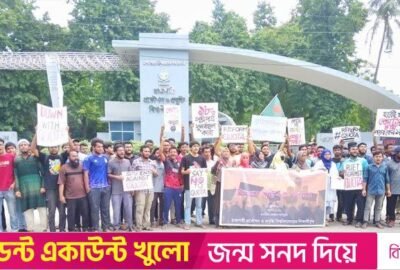Pre-election mega-spending of Serbian ruling party
In a development that has sent shockwaves through Serbia’s political landscape, the ruling Serbian Progressive Party (SNS) has been implicated in a substantial and mysterious expenditure on promotional materials ahead of the 2022 elections. Leaked customs data shared with the Organized Crime and Corruption Reporting Project (OCCRP) and its partner, the Center for Investigative Journalism of Serbia (CINS), reveal that SNS spent an astonishing $3.3 million importing more than a million promotional items. This amount significantly exceeds the party’s previous expenditures on similar items, raising a host of questions about the transparency and legality of these purchases.
SNS is no stranger to using a variety of promotional items to convey its political messages. These items range from everyday objects like caps and pens to more unusual items such as ice scrapers and back scratchers. However, the scale and timing of the import ahead of the 2022 elections were unprecedented. The records show that the party imported these items from China, with transportation facilitated through three separate flights from Turkey, Uzbekistan, and China, the latter making a stopover in Russia.
Despite the promotional items themselves costing only $1.2 million, the additional transportation expenses brought the total to $3.3 million. This sum dwarfs previous spending by SNS on similar promotional materials, according to its financial records. Notably, this significant expenditure was not reported in the party’s campaign accounts, raising suspicions about the true nature of the purchase.
Serbian law mandates that political parties must open special bank accounts for election spending and provide detailed expense reports to the country’s anti-corruption agency. However, due to the timing of the promotional material imports—just before the official election announcement—SNS was not required to declare the expense in its campaign reports. Instead, the party listed a similarly priced purchase in its annual financial declarations, which require less detail.
The annual report noted a $3.35 million payment to Milšped, a major Serbian transportation and logistics company, for “costs of advertising material and publications.” This payment, listed as part of the party’s “regular work,” accounted for two-thirds of SNS’s total $4.3 million expenditure on advertising materials and publications for the year. However, the report did not specify the type of advertising material or name Ridzone Creative SRL, the Romania-based company listed as the exporter in the customs data.
Ridzone Creative SRL, the company named as the exporter of the promotional materials, adds another layer of intrigue. The firm primarily produces television content and has been involved in a corruption case in Romania concerning payments from the Romanian Social Democratic Party. Additionally, Ridzone Creative’s owner, Catrinel Maria Gheorghe, has ties to companies allegedly controlled by Sebastian Ghiță, a Romanian businessman and former politician who has found refuge in Serbia amid legal troubles back home.
Ghiță, who has faced numerous charges including bribery, blackmail, and buying influence in Romania, was granted asylum in Serbia and has successfully contested extradition requests. His connections to Ridzone Creative and the suspicious nature of the transaction between SNS and the company have raised serious questions about the true purpose of the purchase and whether other goods or services were concealed in the reported expenses.
Nemanja Nenadić from Transparency International’s Serbian branch highlighted the lack of transparency surrounding the party’s most significant financial transaction. “The public essentially doesn’t have information about what exactly was the purpose of the most financially significant expense of the largest party,” he said, adding that the costs and timing suggest potential overpayment and possible concealment of other goods or services.
Vladimir Tupanjac, a lawyer and former employee of Serbia’s Agency for the Prevention of Corruption, echoed these concerns, noting that the agency should have investigated the import to determine whether it was used for regular work or campaign purposes. He pointed out that such a high payment to a transportation company like Milšped, which is not typically involved in the sale of promotional materials, should have triggered a more detailed investigation.
The mystery surrounding SNS’s promotional spending is part of a broader pattern of questionable practices and allegations of corruption within the party. In February, the European Parliament adopted a resolution calling for an international investigation into alleged irregularities during and after the December 2023 parliamentary and local elections. These elections, in which SNS claimed another victory, were marred by accusations of election fraud by watchdogs and opposition groups.
Civil society organizations have long warned that Serbia is sliding towards autocracy under President Aleksandar Vučić, who led SNS for over a decade and remains its de facto leader. The latest revelations about the party’s spending practices further undermine public trust and highlight the need for greater transparency and accountability in Serbian politics.
The SNS promotional materials case underscores the importance of stringent financial reporting and oversight in political campaigns. It also highlights the potential for misuse of funds and the manipulation of financial declarations to obscure the true nature of political expenditures.
The Serbian anti-corruption agency and other regulatory bodies must take these findings seriously and conduct thorough investigations to ensure that political parties adhere to the law and maintain transparency in their financial activities. Furthermore, international bodies and civil society organizations should continue to pressure the Serbian government to uphold democratic principles and prevent the erosion of political integrity.
The involvement of Ridzone Creative and its owner Catrinel Maria Gheorghe adds a layer of complexity to the case. Ridzone Creative’s primary business is producing television content, making it an unlikely supplier of promotional materials. The company’s connections to Sebastian Ghiță, a controversial figure in Romanian politics, further complicate the narrative.
Ghiță, a former Romanian Social Democratic Party MP, fled to Serbia in 2017 amid numerous legal troubles, including charges of bribery and money laundering. His connections to Ridzone Creative and the suspicious transaction with SNS suggest a potential attempt to obscure the true nature of the expenditures. Ghiță’s history of legal issues and his ties to influential figures in both Romania and Serbia raise questions about the integrity of the SNS’s financial practices.
The revelations about SNS’s mystery mega-spend on promotional materials come at a crucial time for Serbia’s political landscape. As the country grapples with allegations of election fraud and concerns about democratic backsliding, the need for transparency and accountability in political financing has never been more critical.
The Serbian government must take proactive steps to address these concerns and ensure that all political parties adhere to strict financial reporting standards. This includes conducting thorough investigations into suspicious transactions and holding those responsible accountable for any wrongdoing.
Moreover, international organizations and civil society groups must continue to advocate for democratic reforms and transparency in Serbia’s political system. By shining a light on these issues and demanding accountability, they can help to restore public trust in the country’s political institutions.
The mystery surrounding SNS’s massive pre-election promotional spending highlights significant issues in Serbia’s political and financial systems. The lack of transparency, potential overpayment, and connections to controversial figures like Sebastian Ghiță underscore the need for greater accountability and oversight in political financing.
As Serbia faces increasing scrutiny from both domestic and international bodies, it is imperative that the government and regulatory agencies take these findings seriously and work to ensure that all political parties operate with transparency and integrity. Only through rigorous scrutiny and unwavering commitment to democratic principles can Serbia hope to build a political system that truly serves its people and maintains their trust.
The post Pre-election mega-spending of Serbian ruling party appeared first on BLiTZ.






